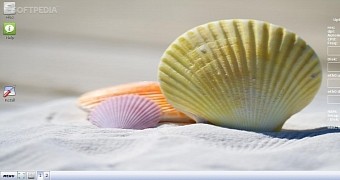Debian-based antiX 17 Linux has recently entered development, and it today received a new Alpha build, the second in the upcoming series based on the soon-to-be-released Debian GNU/Linux 9 "Stretch" operating system.
antiX 17 Linux Alpha 2 is here a little over two weeks after the release of the first Alpha build, and it looks like it rebases the kernel packages on Linux 4.9.6, which has been customized by the development team with extra drivers, etc. The Linux kernel headers are included as well, but please note that this is not a Linux-libre kernel.
Also included in the second Alpha images of antiX 17 Linux are a bunch of tools that some of you might find useful. For example, there's a command-line remastering utility for creating your own antiX Live system, a command-line installer, as well as a live-usb-maker tool for creating Live USB sticks with antiX or other distros.
Persistence is provided for the antiX Live system
Among other tools included in this release, we can mention live-kernel-updater for updating the kernel packages even if you're running antiX live, the GNU nano editor for editing configuration files, rsync for keeping files in sync, and the antiX 17 Linux Alpha 2 images now offer persistence so you can save your file and reuse the OS later (USB only).
The eudev device file manager was included as well, but the antiX devs would like your feedback to know if it works as expected or not. The operating system remains true to being systemd-free and it uses SysVinit as default init system. Tools like xz-utils, gettext-base, and lockfile-progs are also pre-installed.
When installing antiX 17 using these Alpha 2 images, you should know that the lsb-release and console-date package will also be installed, along with the libudev-dev and libudev1 libraries for eudev. You can download the ISO images for either 32-bit or 64-bit systems right now from our website, but please note that this is a pre-release build. Also, UEFI support is not implemented in these ISOs.

 14 DAY TRIAL //
14 DAY TRIAL //